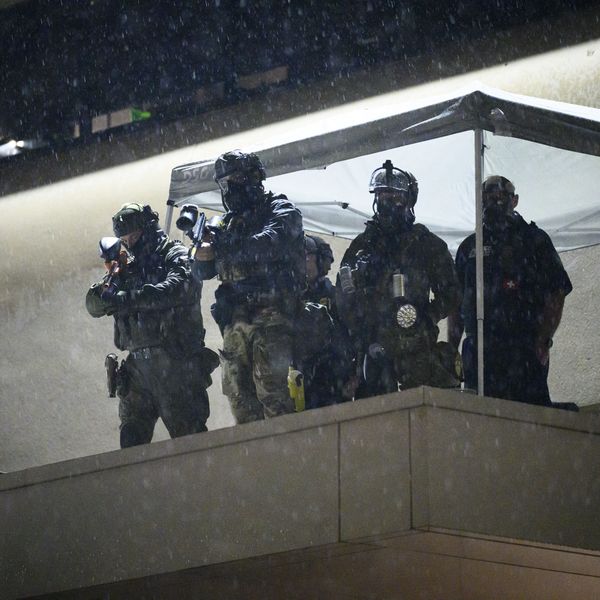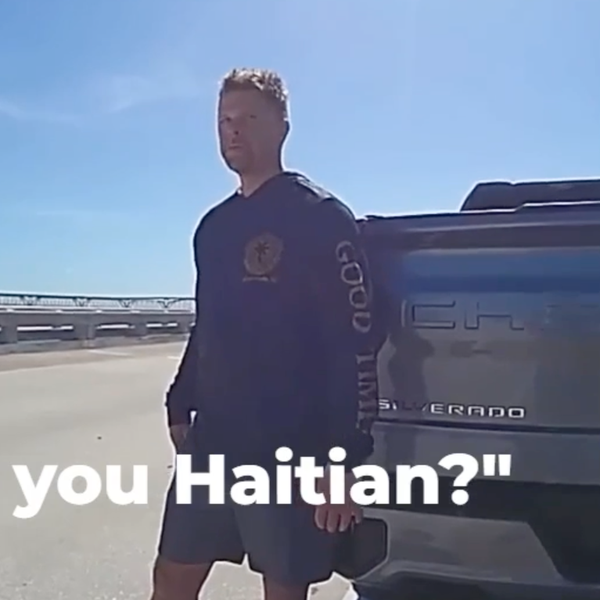Canada's federal government announced Wednesday that it will finally launch a long-awaited inquiry into the country's murdered and missing Indigenous women and girls.
"The gravity of the crisis of violence against indigenous women in Canada demands a national inquiry."
--Liesl Gerntholtz, Human Rights WatchAl Jazeera reports:
Canadian Minister of Indigenous Affairs Carolyn Bennett said a national, independent commission would begin [its inquiry] on September 1.
Bennett said the commission would have the "historic" ability to gather information across Canada and she thanked the indigenous families that have already shared their experiences.
"It's because of these courageous women and families, who knew something was very wrong, that we are here today," Bennett said during a press conference at the Canadian Museum of History near Ottawa.
"They knew an inquiry was needed to achieve justice and healing and to put an end to this ongoing terrible tragedy."
Rights groups have long called for such an inquiry, and Prime Minister Justin Trudeau campaigned on a promise to establish one.
Amnesty International has called [pdf] the thousands of murders and abductions a "national human rights crisis," and Human Rights Watch reported on the scope of the violence last year:
Indigenous women and girls in Canada are murdered at almost four times the rate of other women and girls in Canada. In 2014, the Royal Canadian Mounted Police identified 1,181 cases of murders and disappearances of indigenous women and girls between 1980 and 2012, double the previous estimates. In 2013 Human Rights Watch issued a report on police treatment of indigenous women in northern British Columbia that documented not only police failures to protect indigenous women from violence, but also police abuse of these women and girls.
"When police abuse happens or when the police fail to provide adequate protection, women, girls, and their families have limited recourse," said Liesl Gerntholtz, women's rights director at Human Rights Watch, in 2014. "The gravity of the crisis of violence against indigenous women in Canada demands a national inquiry."
Advocacy group the Native Women's Association of Canada (NWAC) noted that it has been calling for such an inquiry for over a decade as it praised the latest news.
"We welcome the leadership shown by the federal government today. After 11 years of NWAC listening to the families of the missing and murdered Indigenous women and girls in Canada, we are pleased that we now have a government who is prepared to listen and act," the organization's president wrote in a statement.
Al Jazeera writes that "Marion Buller, the first female First Nations judge in British Columbia, will head up the five-person commission, which is tasked with examining the root causes of the violence, including racism, sexism and Canadian colonialism."
The news outlet continues:
The commissioners will have the power to compel individuals to give evidence, including police officers, and gather documents, Bennett said. The inquiry will be able to issue recommendations that are non-binding.
"Our goal is to make concrete recommendations that will ensure the safety of our women and our girls in our communities," said Buller, the chief commissioner.
The commission will begin its inquiry on September 1 and says it will issue a final report and recommendations based on its findings by December 2018.
While welcoming the long-awaited inquiry, many Indigenous rights advocates also expressed concerns about adequacy of the investigation's scope.
For example, NWAC observed that in the official description of the inquiry, "[t]here is no mention of the role of the provinces and territories and yet we know that some of the systemic issues will require provincial discussions, namely police services and the child welfare system."
"We cannot ignore what we know," the group adds. "Girls have described that they were sex trafficked from group homes and motels that are part of the child welfare system. We have a disproportionate number of Indigenous people who are in the criminal justice system. These issues are all interrelated and our expectation is that one reason we are having the inquiry [is] to address how these issues relate to violence against Indigenous women and girls."
Indeed, there is tremendous distrust of police and government forces in Indigenous communities, as the police for decades abducted Indigenous children and forced them into the abusive residential school system.
Alex Neve, executive director of Amnesty International Canada, told Al Jazeera that "there are still doubts, uncertainty and concern" about the extent to which the inquiry will be able to investigate Canada's federal and provincial justice systems and police forces.
These issues "are particularly preoccupying as they go to the very fundamentals of what this inquiry must address," Neve told the outlet.

